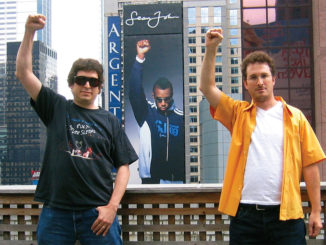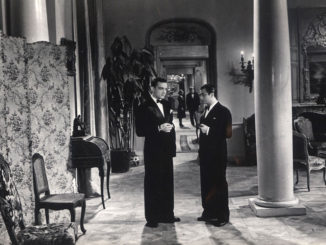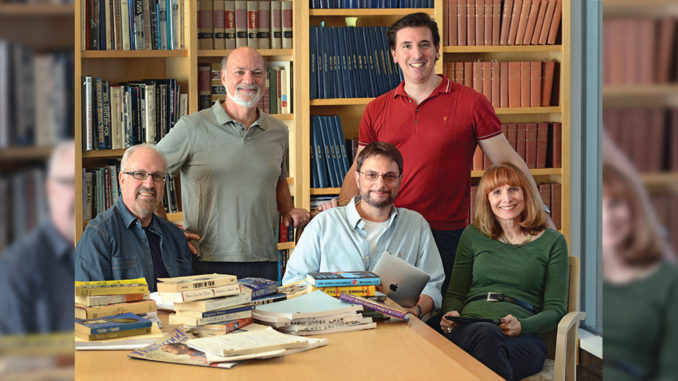
by Dan Bronson • portraits by Martin Cohen
Universal Pictures story analyst Chris DeBiasse uses a metaphor to describe his work. “I’m a fisher-man. Every morning, I get in my boat and go out hoping to catch something, hoping to reel in something big,” he explains. Analysts — always the first to see material submitted to a studio or network — spend their working lives trolling for their company’s next big hit.
Here’s how it works:
Agents and producers submit material (scripts, books, plays, articles) to studio and network production executives, who promise to read the work as soon as possible, but instead send it off to their story departments for coverage.
The analyst reads the material, prepares a synopsis and an analysis evaluating its potential as a film, and offers a professional opinion: Pass, consider or recommend. There are many passes, few considers and even fewer recommends.
The coverage and the material then go back to the executive, who, in the case of a pass, reviews the coverage without ever reading the material itself, calls the submitter, and says something along the lines of “Liked it. Didn’t love it.” Only in the case of a consider or a recommend does anyone but the analyst actually read the material itself.
It is, of course, every analyst’s dream to find the real thing — a story that might actually translate to the screen as a major hit. CineMontage spoke to five top analysts about their daily fishing expeditions and about the big catches they hooked, as well as the ones that got away.
VAL LEVETT
Val Levett took a film degree at the University of Iowa and came to Hollywood with no clue as to what she wanted to do beyond her vague notion of a “film career.” After picking up a bit of work as a freelance reader, she interviewed for a job at the Warner Bros. Pictures story department and went to work there, thinking it would be good for a year or two while she figured out where she wanted to go in life. Thirty years later, she’s still at Warner.
When her first child arrived, the studio allowed her to set up a crib in her office and bring her infant to work each day. Later, as her family grew, she was allowed to work from home.
It was perhaps her commitment to motherhood and family life that made her receptive to a young adult book by an unknown British author when it arrived on her desk. The author was J.K. Rowling and the book was Harry Potter and the Philosopher’s Stone. Levett loved it for its originality and recommended it enthusiastically. Then, in the daily flow of projects to be read and evaluated, she forgot about it, unaware that the studio had picked it up.
A year later, she was at a school event and overheard one of the other mothers talking about this incredible book. It had been published here in the States with a different title — Harry Potter and the Sorcerer’s Stone—so she did not immediately recognize it as the book she’d recommended months before. She simply thought to herself, “That sounds familiar.”
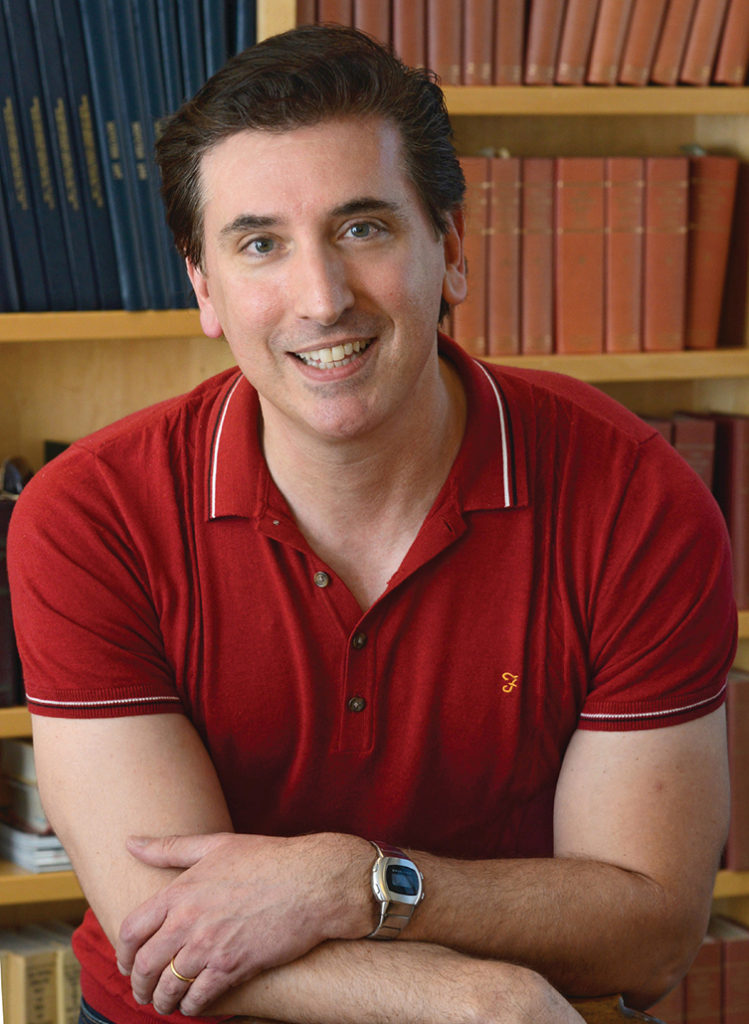
Levett was, of course, thrilled to find that the studio was making the book into a film (with the same US title). Harry Potter and the Sorcerer’s Stone (2001) would go on to earn over 60 award nominations — including three Academy Award nods — and many wins. The film has grossed $969 million around the globe and launched what would become one of the most successful franchises of all time. When asked if she’d received a massive bonus for her contribution, she laughs and says, “Of course. Fifty percent of the profit.”
Did anything big ever slip off Levett’s hook? Well, there was something by a minor writer whose three earlier novels had never caught on with the public, she reports. His name was Dan Brown, and his new book was The Da Vinci Code. She loved it. But Warner, for whatever reasons, decided not to pick it up. The film, of course, was eventually made and released by Columbia Pictures in 2006, and went on to earn $758 million worldwide and garner many award nominations, including a Golden Globe.
DAVID CHURCHILL
At sea after graduating from Northwestern University with a master’s degree in Literature, David Churchill ended up teaching freshman English at LA City College. It was, he said, “a hateful job” because most of the students in his classroom were there not because they wanted to be, but because they were required to be.
He quit and drifted into freelance story analysis, eventually ending up at Peter Guber and Neil Bogart’s Casablanca Record and Filmworks. It was an ideal situation.
Today, most story analysts have very little contact with the production executives they serve; the communications are all one-way, from reader to executive. As one veteran analyst had put it, “It’s as if you’re sending your opinions into the void, doing a lot of work but never knowing if you’ll be heard.”
But at Casablanca, if Churchill found something that excited him, he could wander into Guber’s office and talk up a project face-to-face. That’s what happened when he read a wonderful book by Thomas Hauser called The Execution of Charles Horman.
Churchill loved the book, which was an account of the search for an American journalist who disappeared in the chaos and violence of a right-wing coup in South America. Casablanca had just enjoyed a great success with Midnight Express, a film with a similar theme and setting, and he used that fact to help sell Guber on the project, which eventually was released in 1982 by Universal Pictures as Costa-Gavras’ Missing. It received four Oscar nominations, including Best Picture — and won for Best Adapted Screenplay — as well as many other nods and wins, collecting a gross of nearly $15 million worldwide the year it was released.
He eventually moved on from Casablanca, working at most of the majors until eventually settling in at Walt Disney Pictures, where he remained until his recent retirement. Over the years, he’s watched the nature of the business change. In the past, studios were interested in good stories of every kind, according to Churchill. Today, they want marketable concepts designed for their target teenage audience. Back then, they did very little development; now, they “grind the story down, drain it of life in the course of 10 drafts, and then it disappears,” he laments.
Churchill’s biggest, most exciting discoveries were in the past — Missing, of course, and the original Endless Love at Casablanca. Though he didn’t find them, he subsequently worked on prestige projects like The Falcon and the Snowman, Moonstruck, Broadcast News and Running on Empty.
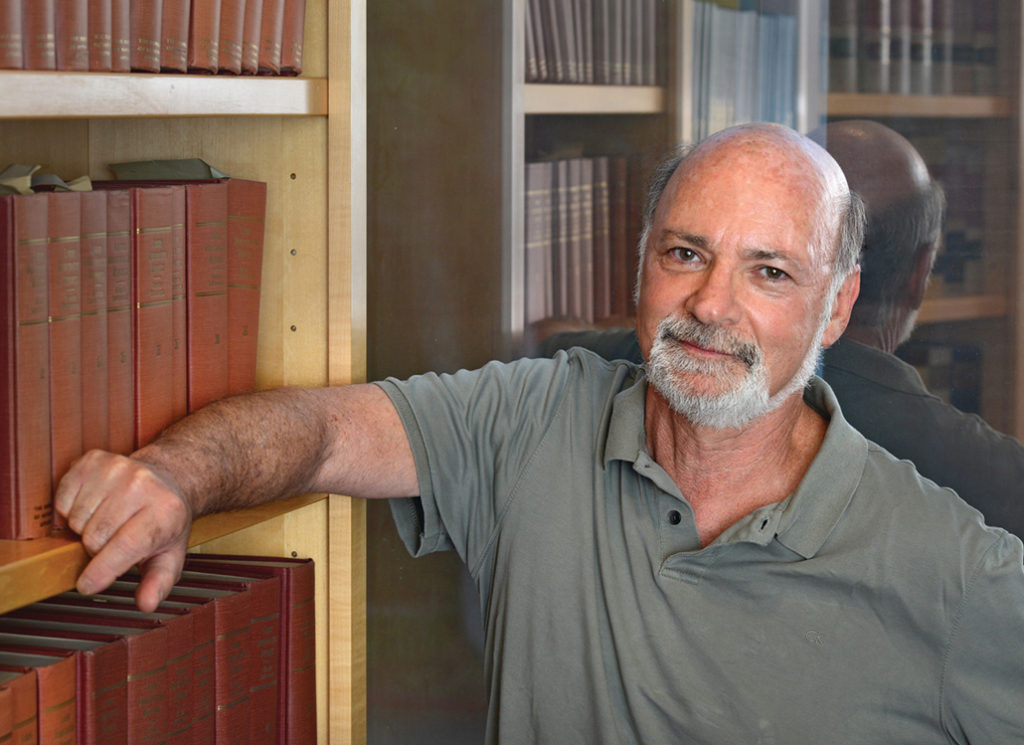
Occasionally, he made the wrong call: He thought Driving Miss Daisy was one of the worst screenplays he’d ever read. It won four Oscars, including Best Picture and Best Adapted Screenplay, when it was released in 1989, and went on to gross $146 million worldwide for Warner Bros. He also felt that Inglourious Basterds was poorly written. That film, released by the Weinstein Company, garnered eight Oscar nominations, including Best Screenplay, winning one; it also made $321 million worldwide since its 2009 release.
Toward the end of his long career, Churchill came to the conclusion that there were no more discoveries to be made — only deals and marketing concepts to be developed.
ALAN EHRLICH
Alan Ehrlich came to Hollywood from New Mexico, where he had completed all the requirements for a doctorate in Drama, with the exception of his thesis. He arrived in town with a wife, a baby and $200 in his pocket. After his spec script failed to sell and he grew tired of moonlighting as a waiter, he managed to find work as a story analyst at First Artists. He subsequently found employment at most of the majors, particularly at Orion Pictures, and then 21 years at Paramount Pictures.
In acknowledgement of the low profile that readers have in Hollywood, Ehrlich thinks of himself as “the offensive tackle in football — the guy who nobody notices, who opens up the hole for the highly paid running back to run through and get all the glory.” It’s a responsibility that he, like most analysts, takes very seriously. As “the first pair of eyes” to see a project at a studio, he strives for objectivity and accuracy in his analyses and works very hard to give the actual feel of a screenplay or book in his synopses.
One of the great moments in his career came when Amadeus showed up on his desk. He fell in love with what he felt was a great story, especially the way it was told from the point of view of a jealous rival whose reliability is constantly in question. He gave it an enthusiastic recommendation, Orion picked it up for distribution in 1984, and the rest is legend: Amadeus collected eight Oscars, including Best Picture and Best Adapted Screenplay (out of 11 nominations), won many other awards, and earned over $23 million in theatrical rentals.
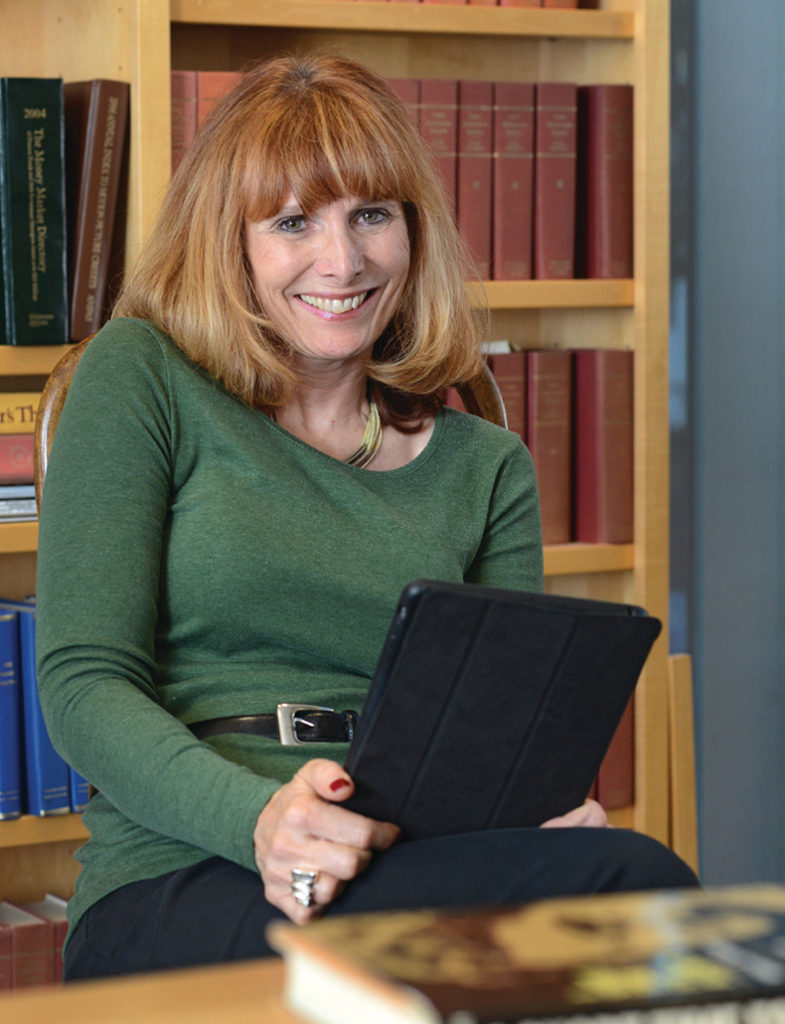
Ehrlich, who later played a similar role in the acquisition of The Truman Show and The Hours at Paramount, was not quite so lucky with Pulp Fiction Unfamiliar with writer/director Quentin Tarantino at the time, he read the script on overtime and had no idea what to expect. Blown away by the story, its dialogue, twisted humor and especially its non-chronological, jigsaw-puzzle structure, the analyst began his coverage with unabashed enthusiasm: “This is the best script of its kind I’ve ever read.” But Paramount passed. Tarantino was insisting on directing, and his directorial debut, Reservoir Dogs, apparently was not enough to convince the executive group that he could pull it off.
Pulp Fiction, of course, became one of the runaway hits in 1994 for Miramax, scoring seven Academy Award nominations, including Best Picture, and winning for Best Original Screenplay. It also tallied a worldwide gross of $213 million.
For Ehrlich, it was the big one that got away, or to use his own metaphor, his failure to open up that hole inviting enough for the running back to run through.
HARRISON REINER
Harrison Reiner has led many lives: a graduate of NYU and Columbia, a student at the Royal Academy of Dramatic Art, front office supervisor of the Waldorf-Astoria, an actor who trained with Stella Adler, a story editor at RKO, a production executive on the Academy Award-winning foreign language film Cinema Paradiso, a professor of screenwriting at UCLA, a producer and co-writer of an award-winning independent film, and currently, a story analyst at CBS where he has happily spent the last 17 years.
His long experience in the world of show business has taught him that readers are often treated like second-class citizens and studios can be shark tanks where executives “eat their underlings for lunch.”
But he quickly learned that CBS is different. The executives there treat him with respect, give him the flexibility to engage in outside activities like mentoring young filmmakers from diverse communities and producing indie films, and encourage him to do long, thoughtful synopses and commentaries in place of the give-it-to-me-in-a-single-page approach that prevails in so many shops. “They don’t have ADD [attention deficit disorder] at CBS; they want to be informed,” he explains, and then adds, “I’d drag the curtains with me before I’d leave. I don’t want to talk about it too much; someone might kill me to get my job.”
One of Reiner’s most memorable experiences at the “Cinema Paradiso” of CBS came when Leslie Moonves, then president of CBS Entertainment, got him the 900-page manuscript of Mario Puzo’s final novel, The Last Don, giving him just over a day to cover it and submit a 10-to-15-page synopsis with extensive commentary.
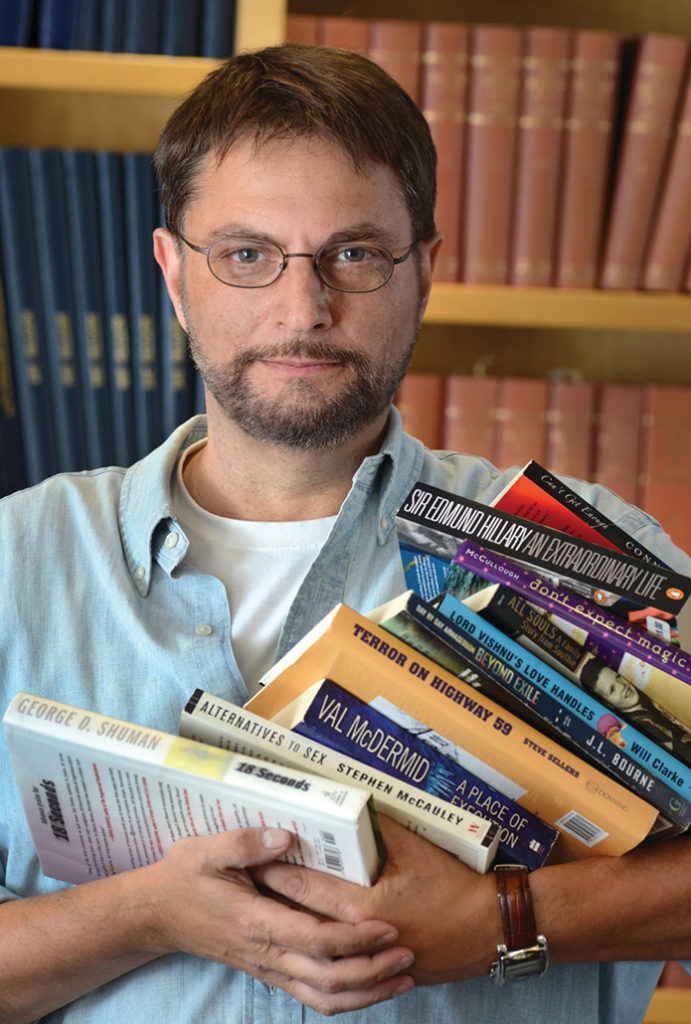
The analyst went without sleep to complete the assignment, and did it gladly. “You watchThe Godfather as a child,” he says excitedly. “You worship Puzo and [Francis Ford] Coppola as gods. You’re reading the last manuscript of the man whose work was the basis for one of the most legendary films of all time. Can you imagine? Getting to read Mario Puzo’s last novel before the rest of the country? It was a privilege — and one of the great perks of the job — being given that opportunity.”
He put his neck on the line and recommended the project emphatically, and Moonves made a winning offer on it the same day Reiner submitted his coverage — which became the basis for what the analyst was told was the most successful CBS miniseries in over a decade at the time of its broadcast. Mario Puzo’s The Last Don aired in December 1997, receiving three Emmy Award nominations, including Outstanding Miniseries.
Reiner did not have time to discuss any projects that got away. Interviewed via transatlantic phone call in mid-July, he was in transit, having just escaped the bombs and missiles criss-crossing the skies over Gaza and Israel, where he had gone on a visit inspired by his work on his most recent assignment at CBS.
CHRIS DEBIASSE
Chris DeBiasse, a graduate of the film school at Ithaca College, arrived in Hollywood in the 1980s, and managed to secure a position as secretary to an actor’s agent. He didn’t like the job but did discover that he liked reading screenplays, and soon got work as a story analyst at Walt Disney Pictures and Universal Pictures, the latter of which has been his home for the last seven years.
The metaphorical fisherman whose quote began this article, DeBiasse’s biggest catch of late was Ted. In turnaround from 20th Century Fox Film Corporation, where it had been developed, the script struck him as “too funny to say no to,” and the executives at Universal agreed. “It wasn’t Shakespeare, but it was inspired,” he adds.
Picking up the project was just the beginning of the process for the analyst, who also did the development notes on Ted. This is the aspect of the story analyst’s job that nearly all readers find most satisfying: identifying the strengths and weaknesses of a script, suggesting solutions to problems, and offering ideas to improve marketability.
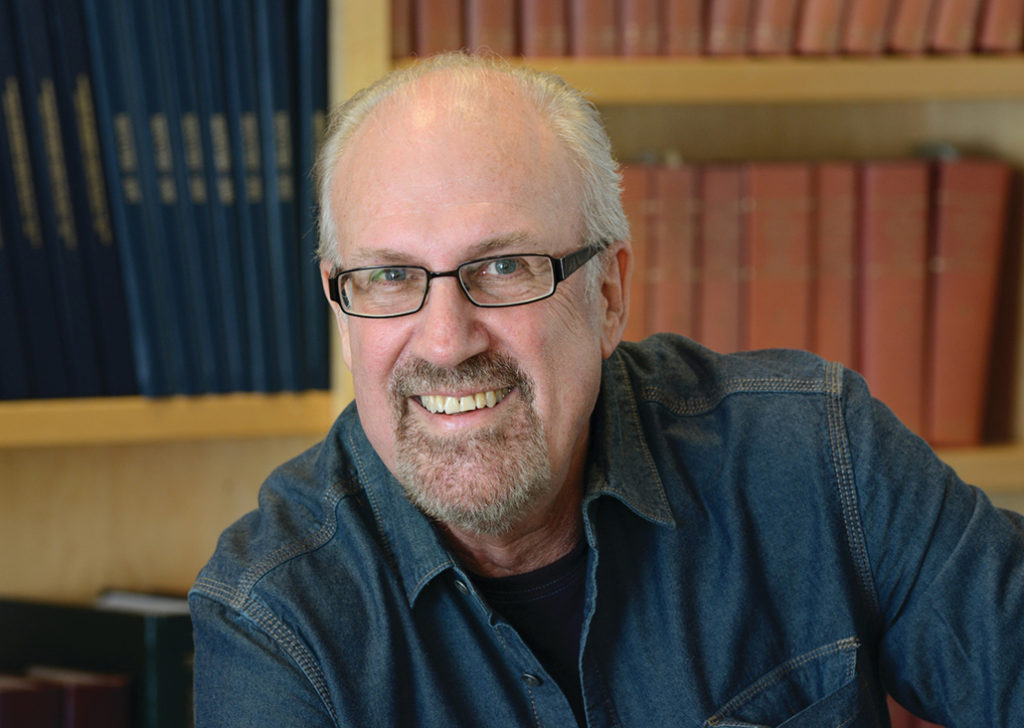
The film was one of the comedy hits of 2012, earning a worldwide gross of $548 million, and along the way collecting many award nominations, including an Oscar nod for best Original Song. For Universal, Ted was a big fish landed. For Fox, it was the one that got away. But as every fisherman knows, the luck that’s with you one day may desert you the next.
That was the case for Universal and a little item it had in development called Gravity. The project already had Alfonso Cuarón attached as co-writer and director, but was to star Angelina Jolie and Robert Downey, Jr. Many at Universal were wary of the scale of the piece, given the spartan story elements. Though they could imagine that Cuarón’s contribution would be significant, the risk seemed untenable, so they let it go…to Warner Bros.
The undeniable hit of 2013, Gravity won seven of the 10 Oscars for which it was nominated, including Best Directing, Cinematography and Editing, along with many other awards. As well, the film has grossed $716 million worldwide.
Like that of the fisherman, the job of the story analyst can net results that alternate between fulfilling and frustrating. And there is no sure-fire way to predict which way things will go. Basically, it’s all a classic case of screenwriter/novelist William Goldman’s dictum about the entertainment industry, with which he opened his 1983 memoir, Adventures in the Screen Trade: “Nobody knows anything.”


